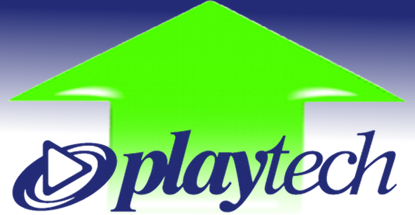 Online gambling software outfit Playtech reported healthy revenue growth in Q1, driven by its core casino product. Total revenue in the first three months of 2014 roe 17.4% to €102.7m, more than half of which (€55.4m) came via its casino division, which rose 25.6%. On a sequential basis, overall revenue was up 2.9% from Q4 2013. Average daily revenue through the first 29 days of April was up 15% over Q2 2013.
Online gambling software outfit Playtech reported healthy revenue growth in Q1, driven by its core casino product. Total revenue in the first three months of 2014 roe 17.4% to €102.7m, more than half of which (€55.4m) came via its casino division, which rose 25.6%. On a sequential basis, overall revenue was up 2.9% from Q4 2013. Average daily revenue through the first 29 days of April was up 15% over Q2 2013.
Playtech’s services revenue rose 12.9% to €29.7m, thanks to the July 2013 addition of the PokerStrategy affiliate and training site. The sports betting vertical, including subsidiaries Geneity Ltd. and mobile sportsbook Mobenga, reported revenue up 21.7% to €5.6m. Playtech’s land-based revenue was up 16.7% to €2.8m. But the news wasn’t all positive, as bingo revenue fell 16.7% to €4m and poker was down 13.6% to €3.8m.
On a geographical basis, Europe accounted for 58% of Playtech’s total revenue, down from 66% year-on-year and 62% sequentially. Europe’s loss was Asia’s gain, as the far east saw its revenue share grow to 33% from 22% last year. The rest of the world saw its share slip from 12% last year to 9%.
Playtech’s growing Asian grey market operations may be of some concern to the UK Gambling Commission. In March, the UK’s gambling watchdog revealed that operators seeking to participate in the country’s new licensing regime would need to justify their continued operations in any market in which online gambling wasn’t expressly legal. The Commission had previously let it be known that online gambling software providers would also be required to apply for licenses under the new regime. It’s not clear whether the Commission would require B2B software providers to justify their Asian-facing revenue.
This week, the Commission published the latest update to its proposed amendments to the license conditions and codes of practice for online gambling operators. The provision requiring software suppliers to hold a UK license will take effect Jan. 1, 2015, after which operators will have to cease using any product provided by unlicensed companies. The Commission intends to offer further guidance in May on “the difference between providing facilities for gambling and operating a gambling software business.”
